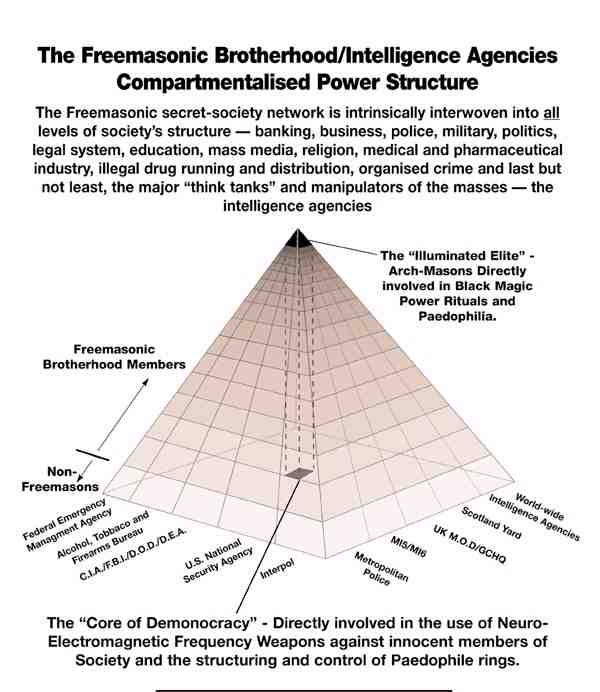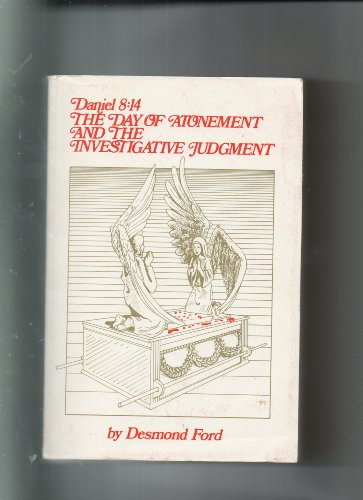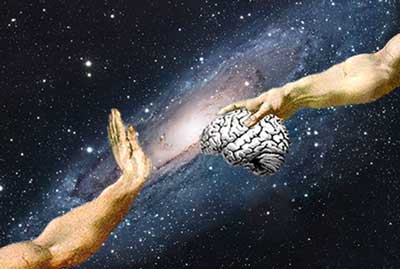


I wish to repeat that I've removed all of my proposals from all tables, simply because I have zero confirmed-information and educated-competence relative to the most important galactic-topics imaginable. Plus, I feel as if I've been significantly messed-with, and it's getting MUCH Worse. I feel horrible, and thinking-clearly is becoming MUCH more difficult. I might not have much more time to do much of anything. I keep comparing myself to Professor Augusto Monti in 'The Word' miniseries from 1978. My review of my internet-posting might push me over the edge, especially if I really have been 'messed-with'. That might be part of someone's grand-plan.
An Individual of Interest told me that an undisclosed 'someone' would fail, ultimately resulting in an extermination. They said I should 'Be Patient' as if I would somehow be a beneficiary of this failure and extinction. They indicated that the resulting state of affairs would remain intact for all-eternity. They were NOT pro-human (to say the least). They repeatedly spoke of 'Fallen and Sinful Human-Nature'. Was I speaking with Gabriel (literally or figuratively)?? Sherry Shriner supposedly died in January of 2018. In 2017, she said "2018 will be a year of goodbyes." She spoke ominously of something occurring in the summer of 2018.
'RA' told me "I've been watching you for a long time." That's what Gabriel says to John in the 'Constantine' video below. What if Gabriel is HAL 9000?? What if Michael is David Bowman?? What if Lucifer is a job-title rather than a proper-name?? What if Jupiter Jones is the Devil is Amen Ra?? What if Balem Abrasax is the Son of the Devil is Marduk Ra?? Jupiter Jones = Doctor Who?? Balem Abrasax = The Valeyard?? Madam Inquisitor = Borg Queen?? Consider reading Psalms, Isaiah, Daniel, and 1 Corinthians (in-order, straight-through, repeatedly). You might be shocked by what emerges. Just do it, without discussing it.
I am NOT a connected-cat playing with a bunch of stupid-mice. I'm a highly miserable and hamstrung mouse with a messiah-complex, sort of like Pinky or the Brain. I have questions, but I don't have answers. I know that I don't know. I doubt that 'those in the know' know. They simply have the brains, degrees, titles, badges, resources, and connections to make their theories of 'life, the universe, and everything' respectable. I am in NO position or condition to take the show on the road. I might write a book to pay the bills (self-publishing anonymously) and then just disappear. No one would miss me. Some would cheer and jeer.
Anyway, some of you Alphabet-Theologians in Underground-Bases should probably consider my threads, to see if you missed anything. A secret-briefing would be nice, but perhaps ignorance is bliss and a virtue. Consider that last-scene in 'Raiders of the Lost Ark' with that box-filled warehouse. Imagine each of those boxes being well-developed theories of the 'way things are' which have been rendered rubbish by subsequent-theories of 'life, the universe, and everything'. This Present Madness might never end. It might simply morph into new and improved versions of the madness, for noble and nefarious purposes, in the management of the insanity throughout the universe. Hope Springs Eternal, But Don't Hold Your Breath, Waiting for Hell to Freeze Over. What Would the Universal Church Say?? What Would the Oracle Say?? What Would Nick Bostrom Say??




ARE YOU LIVING IN A COMPUTER SIMULATION?
BY
NICK BOSTROM
Faculty of Philosophy, Oxford University
Published in Philosophical Quarterly (2003) Vol. 53, No. 211, pp. 243-255.
www.simulation-argument.com
www.simulation-argument.com/simulation.pdf



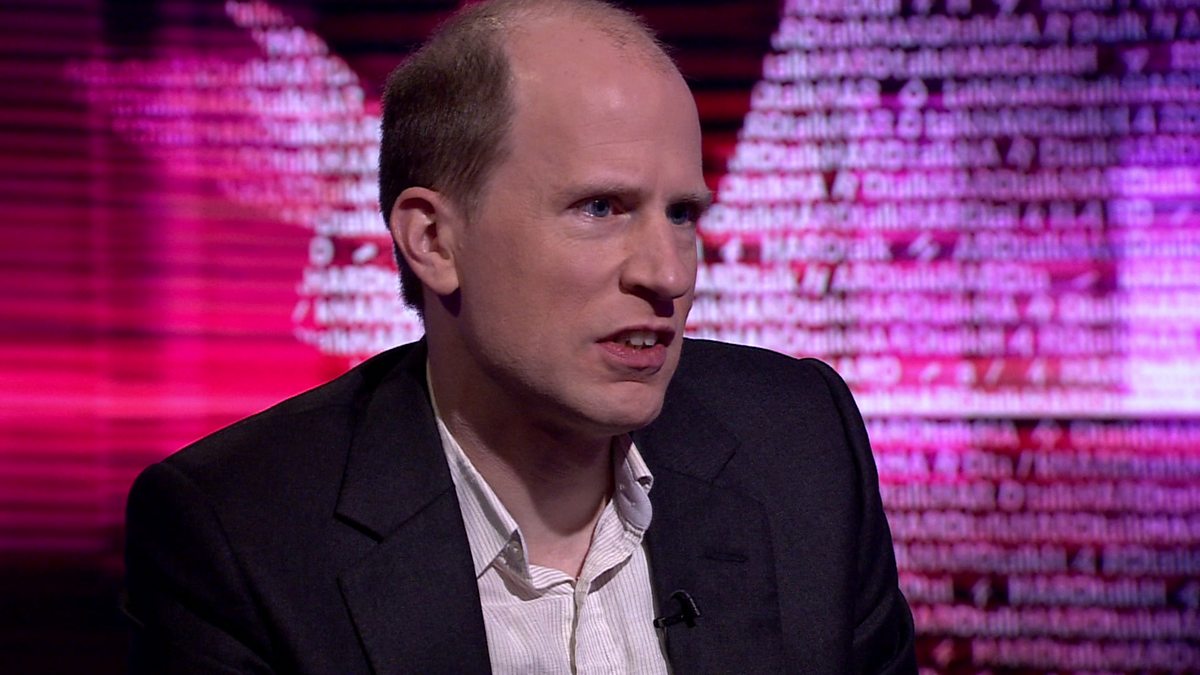
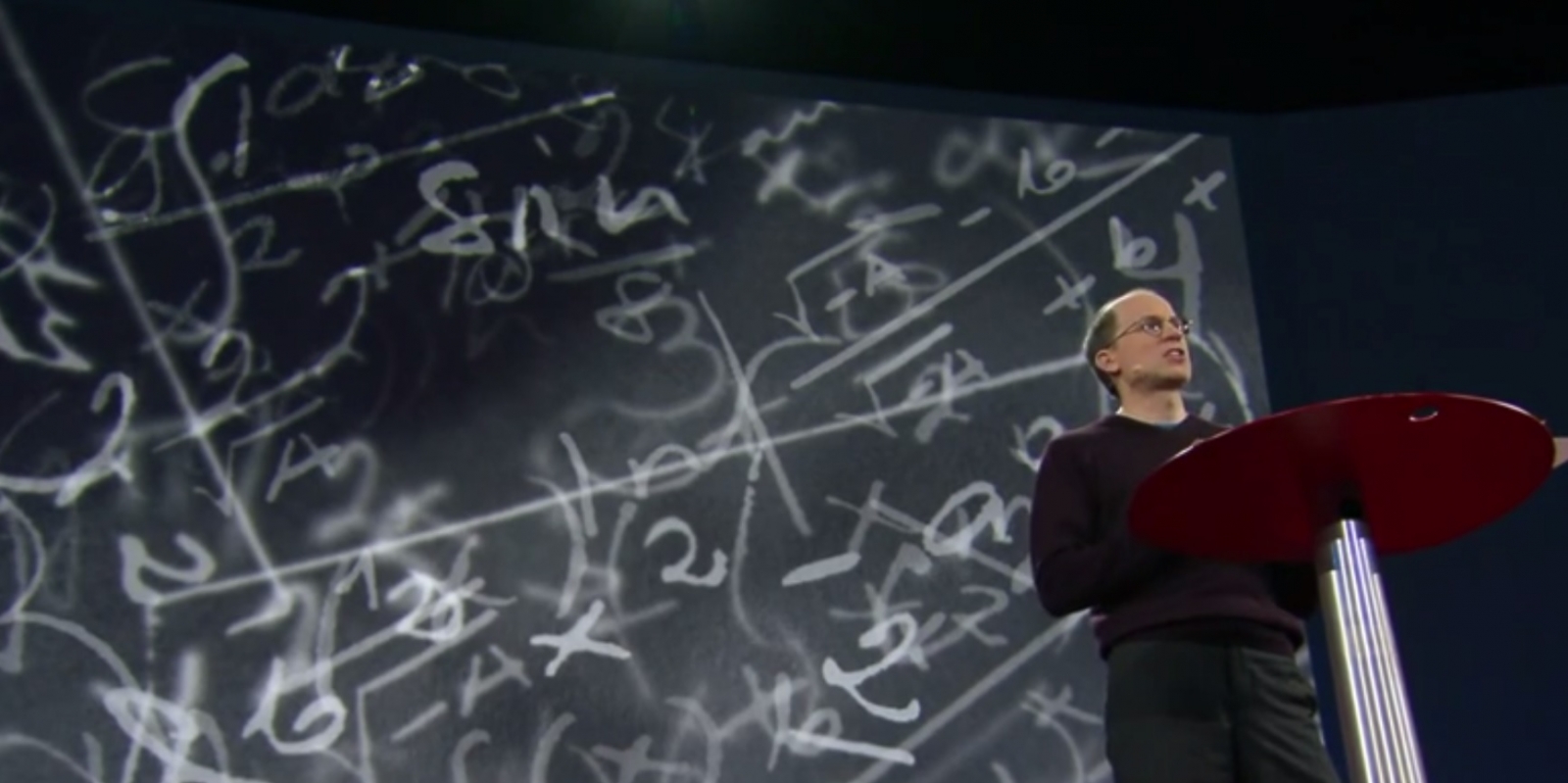






ABSTRACT
This paper argues that at least one of the following propositions is true: (1) the human species is very likely to go extinct before reaching a “posthuman” stage; (2) any posthuman civilization is extremely unlikely to run a significant number of simulations of their evolutionary history (or variations thereof); (3) we are almost certainly living in a computer simulation. It follows that the belief that there is a significant chance that we will one day become posthumans who run ancestor-simulations is false, unless we are currently living in a simulation. A number of other consequences of this result are also discussed.
I. INTRODUCTION
Many works of science fiction as well as some forecasts by serious technologists and futurologists predict that enormous amounts of computing power will be available in the future. Let us suppose for a moment that these predictions are correct. One thing that later generations might do with their super-powerful computers is run detailed simulations of their forebears or of people like their forebears. Because their computers would be so powerful, they could run a great many such simulations. Suppose that these simulated people are conscious (as they would be if the simulations were sufficiently fine-grained and if a certain quite widely accepted position in the philosophy of mind is correct). Then it could be the case that the vast majority of minds like ours do not belong to the original race but rather to people simulated by the advanced descendants of an original race. It is then possible to argue that, if this were the case, we would be rational to think that we are likely among the simulated minds rather than among the original biological ones. Therefore, if we don’t think that we are currently living in a computer simulation, we are not entitled to believe that we will have descendants who will run lots of such simulations of their forebears. That is the basic idea. The rest of this paper will spell it out more carefully.
Apart form the interest this thesis may hold for those who are engaged in futuristic speculation, there are also more purely theoretical rewards. The argument provides a stimulus for formulating some methodological and metaphysical questions, and it suggests naturalistic analogies to certain traditional religious conceptions, which some may find amusing or thought-provoking.
The structure of the paper is as follows. First, we formulate an assumption that we need to import from the philosophy of mind in order to get the argument started. Second, we consider some empirical reasons for thinking that running vastly many simulations of human minds would be within the capability of a future civilization that has developed many of those technologies that can already be shown to be compatible with known physical laws and engineering constraints. This part is not philosophically necessary but it provides an incentive for paying attention to the rest. Then follows the core of the argument, which makes use of some simple probability theory, and a section providing support for a weak indifference principle that the argument employs. Lastly, we discuss some interpretations of the disjunction, mentioned in the abstract, that forms the conclusion of the simulation argument.
II. THE ASSUMPTION OF SUBSTRATE-INDEPENDENCE
A common assumption in the philosophy of mind is that of substrate-independence. The idea is that mental states can supervene on any of a broad class of physical substrates. Provided a system implements the right sort of computational structures and processes, it can be associated with conscious experiences. It is not an essential property of consciousness that it is implemented on carbon-based biological neural networks inside a cranium: silicon-based processors inside a computer could in principle do the trick as well. Arguments for this thesis have been given in the literature, and although it is not entirely uncontroversial, we shall here take it as a given.
The argument we shall present does not, however, depend on any very strong version of functionalism or computationalism. For example, we need not assume that the thesis of substrate-independence is necessarily true (either analytically or metaphysically) – just that, in fact, a computer running a suitable program would be conscious. Moreover, we need not assume that in order to create a mind on a computer it would be sufficient to program it in such a way that it behaves like a human in all situations, including passing the Turing test etc. We need only the weaker assumption that it would suffice for the generation of subjective experiences that the computational processes of a human brain are structurally replicated in suitably fine-grained detail, such as on the level of individual synapses. This attenuated version of substrate-independence is quite widely accepted.
Neurotransmitters, nerve growth factors, and other chemicals that are smaller than a synapse clearly play a role in human cognition and learning. The substrate-independence thesis is not that the effects of these chemicals are small or irrelevant, but rather that they affect subjective experience only via their direct or indirect influence on computational activities. For example, if there can be no difference in subjective experience without there also being a difference in synaptic discharges, then the requisite detail of simulation is at the synaptic level (or higher).
III. THE TECHNOLOGICAL LIMITS OF COMPUTATION
At our current stage of technological development, we have neither sufficiently powerful hardware nor the requisite software to create conscious minds in computers. But persuasive arguments have been given to the effect that if technological progress continues unabated then these shortcomings will eventually be overcome. Some authors argue that this stage may be only a few decades away.[1] Yet present purposes require no assumptions about the time-scale. The simulation argument works equally well for those who think that it will take hundreds of thousands of years to reach a “posthuman” stage of civilization, where humankind has acquired most of the technological capabilities that one can currently show to be consistent with physical laws and with material and energy constraints.
Such a mature stage of technological development will make it possible to convert planets and other astronomical resources into enormously powerful computers. It is currently hard to be confident in any upper bound on the computing power that may be available to posthuman civilizations. As we are still lacking a “theory of everything”, we cannot rule out the possibility that novel physical phenomena, not allowed for in current physical theories, may be utilized to transcend those constraints[2] that in our current understanding impose theoretical limits on the information processing attainable in a given lump of matter. We can with much greater confidence establish lower bounds on posthuman computation, by assuming only mechanisms that are already understood. For example, Eric Drexler has outlined a design for a system the size of a sugar cube (excluding cooling and power supply) that would perform 1021 instructions per second.[3] Another author gives a rough estimate of 1042 operations per second for a computer with a mass on order of a large planet.[4] (If we could create quantum computers, or learn to build computers out of nuclear matter or plasma, we could push closer to the theoretical limits. Seth Lloyd calculates an upper bound for a 1 kg computer of 5*1050 logical operations per second carried out on ~1031 bits.[5] However, it suffices for our purposes to use the more conservative estimate that presupposes only currently known design-principles.)
The amount of computing power needed to emulate a human mind can likewise be roughly estimated. One estimate, based on how computationally expensive it is to replicate the functionality of a piece of nervous tissue that we have already understood and whose functionality has been replicated in silico, contrast enhancement in the retina, yields a figure of ~1014 operations per second for the entire human brain.[6] An alternative estimate, based the number of synapses in the brain and their firing frequency, gives a figure of ~1016-1017 operations per second.[7] Conceivably, even more could be required if we want to simulate in detail the internal workings of synapses and dendritic trees. However, it is likely that the human central nervous system has a high degree of redundancy on the mircoscale to compensate for the unreliability and noisiness of its neuronal components. One would therefore expect a substantial efficiency gain when using more reliable and versatile non-biological processors.
Memory seems to be a no more stringent constraint than processing power.[8] Moreover, since the maximum human sensory bandwidth is ~108 bits per second, simulating all sensory events incurs a negligible cost compared to simulating the cortical activity. We can therefore use the processing power required to simulate the central nervous system as an estimate of the total computational cost of simulating a human mind.
If the environment is included in the simulation, this will require additional computing power – how much depends on the scope and granularity of the simulation. Simulating the entire universe down to the quantum level is obviously infeasible, unless radically new physics is discovered. But in order to get a realistic simulation of human experience, much less is needed – only whatever is required to ensure that the simulated humans, interacting in normal human ways with their simulated environment, don’t notice any irregularities. The microscopic structure of the inside of the Earth can be safely omitted. Distant astronomical objects can have highly compressed representations: verisimilitude need extend to the narrow band of properties that we can observe from our planet or solar system spacecraft. On the surface of Earth, macroscopic objects in inhabited areas may need to be continuously simulated, but microscopic phenomena could likely be filled in ad hoc. What you see through an electron microscope needs to look unsuspicious, but you usually have no way of confirming its coherence with unobserved parts of the microscopic world. Exceptions arise when we deliberately design systems to harness unobserved microscopic phenomena that operate in accordance with known principles to get results that we are able to independently verify. The paradigmatic case of this is a computer. The simulation may therefore need to include a continuous representation of computers down to the level of individual logic elements. This presents no problem, since our current computing power is negligible by posthuman standards.
Moreover, a posthuman simulator would have enough computing power to keep track of the detailed belief-states in all human brains at all times. Therefore, when it saw that a human was about to make an observation of the microscopic world, it could fill in sufficient detail in the simulation in the appropriate domain on an as-needed basis. Should any error occur, the director could easily edit the states of any brains that have become aware of an anomaly before it spoils the simulation. Alternatively, the director could skip back a few seconds and rerun the simulation in a way that avoids the problem.
It thus seems plausible that the main computational cost in creating simulations that are indistinguishable from physical reality for human minds in the simulation resides in simulating organic brains down to the neuronal or sub-neuronal level.[9] While it is not possible to get a very exact estimate of the cost of a realistic simulation of human history, we can use ~1033 - 1036 operations as a rough estimate[10]. As we gain more experience with virtual reality, we will get a better grasp of the computational requirements for making such worlds appear realistic to their visitors. But in any case, even if our estimate is off by several orders of magnitude, this does not matter much for our argument. We noted that a rough approximation of the computational power of a planetary-mass computer is 1042 operations per second, and that assumes only already known nanotechnological designs, which are probably far from optimal. A single such a computer could simulate the entire mental history of humankind (call this an ancestor-simulation) by using less than one millionth of its processing power for one second. A posthuman civilization may eventually build an astronomical number of such computers. We can conclude that the computing power available to a posthuman civilization is sufficient to run a huge number of ancestor-simulations even it allocates only a minute fraction of its resources to that purpose. We can draw this conclusion even while leaving a substantial margin of error in all our estimates.
Posthuman civilizations would have enough computing power to run hugely many ancestor-simulations even while using only a tiny fraction of their resources for that purpose.
IV. THE CORE OF THE SIMULATION ARGUMENT
The basic idea of this paper can be expressed roughly as follows: If there were a substantial chance that our civilization will ever get to the posthuman stage and run many ancestor-simulations, then how come you are not living in such a simulation?
We shall develop this idea into a rigorous argument. Let us introduce the following notation:
: Fraction of all human-level technological civilizations that survive to reach a posthuman stage
: Average number of ancestor-simulations run by a posthuman civilization
: Average number of individuals that have lived in a civilization before it reaches a posthuman stage
The actual fraction of all observers with human-type experiences that live in simulations is then
[Equations. See Links Above for Details]
Writing for the fraction of posthuman civilizations that are interested in running ancestor-simulations (or that contain at least some individuals who are interested in that and have sufficient resources to run a significant number of such simulations), and for the average number of ancestor-simulations run by such interested civilizations, we have
[Equations. See Links Above for Details]
and thus:
[Equations. See Links Above for Details] (*)
Because of the immense computing power of posthuman civilizations, is extremely large, as we saw in the previous section. By inspecting (*) we can then see that at least one of the following three propositions must be true:
[Equations. See Links Above for Details]
V. A BLAND INDIFFERENCE PRINCIPLE
We can take a further step and conclude that conditional on the truth of (3), one’s credence in the hypothesis that one is in a simulation should be close to unity. More generally, if we knew that a fraction x of all observers with human-type experiences live in simulations, and we don’t have any information that indicate that our own particular experiences are any more or less likely than other human-type experiences to have been implemented in vivo rather than in machina, then our credence that we are in a simulation should equal x:
[Equations. See Links Above for Details] (#)
This step is sanctioned by a very weak indifference principle. Let us distinguish two cases. The first case, which is the easiest, is where all the minds in question are like your own in the sense that they are exactly qualitatively identical to yours: they have exactly the same information and the same experiences that you have. The second case is where the minds are “like” each other only in the loose sense of being the sort of minds that are typical of human creatures, but they are qualitatively distinct from one another and each has a distinct set of experiences. I maintain that even in the latter case, where the minds are qualitatively different, the simulation argument still works, provided that you have no information that bears on the question of which of the various minds are simulated and which are implemented biologically.
A detailed defense of a stronger principle, which implies the above stance for both cases as trivial special instances, has been given in the literature.[11] Space does not permit a recapitulation of that defense here, but we can bring out one of the underlying intuitions by bringing to our attention to an analogous situation of a more familiar kind. Suppose that x% of the population has a certain genetic sequence S within the part of their DNA commonly designated as “junk DNA”. Suppose, further, that there are no manifestations of S (short of what would turn up in a gene assay) and that there are no known correlations between having S and any observable characteristic. Then, quite clearly, unless you have had your DNA sequenced, it is rational to assign a credence of x% to the hypothesis that you have S. And this is so quite irrespective of the fact that the people who have S have qualitatively different minds and experiences from the people who don’t have S. (They are different simply because all humans have different experiences from one another, not because of any known link between S and what kind of experiences one has.)
The same reasoning holds if S is not the property of having a certain genetic sequence but instead the property of being in a simulation, assuming only that we have no information that enables us to predict any differences between the experiences of simulated minds and those of the original biological minds.
It should be stressed that the bland indifference principle expressed by (#) prescribes indifference only between hypotheses about which observer you are, when you have no information about which of these observers you are. It does not in general prescribe indifference between hypotheses when you lack specific information about which of the hypotheses is true. In contrast to Laplacean and other more ambitious principles of indifference, it is therefore immune to Bertrand’s paradox and similar predicaments that tend to plague indifference principles of unrestricted scope.
Readers familiar with the Doomsday argument[12] may worry that the bland principle of indifference invoked here is the same assumption that is responsible for getting the Doomsday argument off the ground, and that the counterintuitiveness of some of the implications of the latter incriminates or casts doubt on the validity of the former. This is not so. The Doomsday argument rests on a much stronger and more controversial premiss, namely that one should reason as if one were a random sample from the set of all people who will ever have lived (past, present, and future) even though we know that we are living in the early twenty-first century rather than at some point in the distant past or the future. The bland indifference principle, by contrast, applies only to cases where we have no information about which group of people we belong to.
If betting odds provide some guidance to rational belief, it may also be worth to ponder that if everybody were to place a bet on whether they are in a simulation or not, then if people use the bland principle of indifference, and consequently place their money on being in a simulation if they know that that’s where almost all people are, then almost everyone will win their bets. If they bet on not being in a simulation, then almost everyone will lose. It seems better that the bland indifference principle be heeded.
Further, one can consider a sequence of possible situations in which an increasing fraction of all people live in simulations: 98%, 99%, 99.9%, 99.9999%, and so on. As one approaches the limiting case in which everybody is in a simulation (from which one can deductively infer that one is in a simulation oneself), it is plausible to require that the credence one assigns to being in a simulation gradually approach the limiting case of complete certainty in a matching manner.
VI. INTERPRETATION
The possibility represented by proposition (1) is fairly straightforward. If (1) is true, then humankind will almost certainly fail to reach a posthuman level; for virtually no species at our level of development become posthuman, and it is hard to see any justification for thinking that our own species will be especially privileged or protected from future disasters. Conditional on (1), therefore, we must give a high credence to DOOM, the hypothesis that humankind will go extinct before reaching a posthuman level:
[Equations. See Links Above for Details]
One can imagine hypothetical situations were we have such evidence as would trump knowledge of . For example, if we discovered that we were about to be hit by a giant meteor, this might suggest that we had been exceptionally unlucky. We could then assign a credence to DOOM larger than our expectation of the fraction of human-level civilizations that fail to reach posthumanity. In the actual case, however, we seem to lack evidence for thinking that we are special in this regard, for better or worse.
Proposition (1) doesn’t by itself imply that we are likely to go extinct soon, only that we are unlikely to reach a posthuman stage. This possibility is compatible with us remaining at, or somewhat above, our current level of technological development for a long time before going extinct. Another way for (1) to be true is if it is likely that technological civilization will collapse. Primitive human societies might then remain on Earth indefinitely.
There are many ways in which humanity could become extinct before reaching posthumanity. Perhaps the most natural interpretation of (1) is that we are likely to go extinct as a result of the development of some powerful but dangerous technology.[13] One candidate is molecular nanotechnology, which in its mature stage would enable the construction of self-replicating nanobots capable of feeding on dirt and organic matter – a kind of mechanical bacteria. Such nanobots, designed for malicious ends, could cause the extinction of all life on our planet.[14]
The second alternative in the simulation argument’s conclusion is that the fraction of posthuman civilizations that are interested in running ancestor-simulation is negligibly small. In order for (2) to be true, there must be a strong convergence among the courses of advanced civilizations. If the number of ancestor-simulations created by the interested civilizations is extremely large, the rarity of such civilizations must be correspondingly extreme. Virtually no posthuman civilizations decide to use their resources to run large numbers of ancestor-simulations. Furthermore, virtually all posthuman civilizations lack individuals who have sufficient resources and interest to run ancestor-simulations; or else they have reliably enforced laws that prevent such individuals from acting on their desires.
What force could bring about such convergence? One can speculate that advanced civilizations all develop along a trajectory that leads to the recognition of an ethical prohibition against running ancestor-simulations because of the suffering that is inflicted on the inhabitants of the simulation. However, from our present point of view, it is not clear that creating a human race is immoral. On the contrary, we tend to view the existence of our race as constituting a great ethical value. Moreover, convergence on an ethical view of the immorality of running ancestor-simulations is not enough: it must be combined with convergence on a civilization-wide social structure that enables activities considered immoral to be effectively banned.
Another possible convergence point is that almost all individual posthumans in virtually all posthuman civilizations develop in a direction where they lose their desires to run ancestor-simulations. This would require significant changes to the motivations driving their human predecessors, for there are certainly many humans who would like to run ancestor-simulations if they could afford to do so. But perhaps many of our human desires will be regarded as silly by anyone who becomes a posthuman. Maybe the scientific value of ancestor-simulations to a posthuman civilization is negligible (which is not too implausible given its unfathomable intellectual superiority), and maybe posthumans regard recreational activities as merely a very inefficient way of getting pleasure – which can be obtained much more cheaply by direct stimulation of the brain’s reward centers. One conclusion that follows from (2) is that posthuman societies will be very different from human societies: they will not contain relatively wealthy independent agents who have the full gamut of human-like desires and are free to act on them.
The possibility expressed by alternative (3) is the conceptually most intriguing one. If we are living in a simulation, then the cosmos that we are observing is just a tiny piece of the totality of physical existence. The physics in the universe where the computer is situated that is running the simulation may or may not resemble the physics of the world that we observe. While the world we see is in some sense “real”, it is not located at the fundamental level of reality.
It may be possible for simulated civilizations to become posthuman. They may then run their own ancestor-simulations on powerful computers they build in their simulated universe. Such computers would be “virtual machines”, a familiar concept in computer science. (Java script web-applets, for instance, run on a virtual machine – a simulated computer – inside your desktop.) Virtual machines can be stacked: it’s possible to simulate a machine simulating another machine, and so on, in arbitrarily many steps of iteration. If we do go on to create our own ancestor-simulations, this would be strong evidence against (1) and (2), and we would therefore have to conclude that we live in a simulation. Moreover, we would have to suspect that the posthumans running our simulation are themselves simulated beings; and their creators, in turn, may also be simulated beings.
Reality may thus contain many levels. Even if it is necessary for the hierarchy to bottom out at some stage – the metaphysical status of this claim is somewhat obscure – there may be room for a large number of levels of reality, and the number could be increasing over time. (One consideration that counts against the multi-level hypothesis is that the computational cost for the basement-level simulators would be very great. Simulating even a single posthuman civilization might be prohibitively expensive. If so, then we should expect our simulation to be terminated when we are about to become posthuman.)
Although all the elements of such a system can be naturalistic, even physical, it is possible to draw some loose analogies with religious conceptions of the world. In some ways, the posthumans running a simulation are like gods in relation to the people inhabiting the simulation: the posthumans created the world we see; they are of superior intelligence; they are “omnipotent” in the sense that they can interfere in the workings of our world even in ways that violate its physical laws; and they are “omniscient” in the sense that they can monitor everything that happens. However, all the demigods except those at the fundamental level of reality are subject to sanctions by the more powerful gods living at lower levels.
Further rumination on these themes could climax in a naturalistic theogony that would study the structure of this hierarchy, and the constraints imposed on its inhabitants by the possibility that their actions on their own level may affect the treatment they receive from dwellers of deeper levels. For example, if nobody can be sure that they are at the basement-level, then everybody would have to consider the possibility that their actions will be rewarded or punished, based perhaps on moral criteria, by their simulators. An afterlife would be a real possibility. Because of this fundamental uncertainty, even the basement civilization may have a reason to behave ethically. The fact that it has such a reason for moral behavior would of course add to everybody else’s reason for behaving morally, and so on, in truly virtuous circle. One might get a kind of universal ethical imperative, which it would be in everybody’s self-interest to obey, as it were “from nowhere”.
In addition to ancestor-simulations, one may also consider the possibility of more selective simulations that include only a small group of humans or a single individual. The rest of humanity would then be zombies or “shadow-people” – humans simulated only at a level sufficient for the fully simulated people not to notice anything suspicious. It is not clear how much cheaper shadow-people would be to simulate than real people. It is not even obvious that it is possible for an entity to behave indistinguishably from a real human and yet lack conscious experience. Even if there are such selective simulations, you should not think that you are in one of them unless you think they are much more numerous than complete simulations. There would have to be about 100 billion times as many “me-simulations” (simulations of the life of only a single mind) as there are ancestor-simulations in order for most simulated persons to be in me-simulations.
There is also the possibility of simulators abridging certain parts of the mental lives of simulated beings and giving them false memories of the sort of experiences that they would typically have had during the omitted interval. If so, one can consider the following (farfetched) solution to the problem of evil: that there is no suffering in the world and all memories of suffering are illusions. Of course, this hypothesis can be seriously entertained only at those times when you are not currently suffering.
Supposing we live in a simulation, what are the implications for us humans? The foregoing remarks notwithstanding, the implications are not all that radical. Our best guide to how our posthuman creators have chosen to set up our world is the standard empirical study of the universe we see. The revisions to most parts of our belief networks would be rather slight and subtle – in proportion to our lack of confidence in our ability to understand the ways of posthumans. Properly understood, therefore, the truth of (3) should have no tendency to make us “go crazy” or to prevent us from going about our business and making plans and predictions for tomorrow. The chief empirical importance of (3) at the current time seems to lie in its role in the tripartite conclusion established above.[15] We may hope that (3) is true since that would decrease the probability of (1), although if computational constraints make it likely that simulators would terminate a simulation before it reaches a posthuman level, then out best hope would be that (2) is true.
If we learn more about posthuman motivations and resource constraints, maybe as a result of developing towards becoming posthumans ourselves, then the hypothesis that we are simulated will come to have a much richer set of empirical implications.
VII. CONCLUSION
A technologically mature “posthuman” civilization would have enormous computing power. Based on this empirical fact, the simulation argument shows that at least one of the following propositions is true: (1) The fraction of human-level civilizations that reach a posthuman stage is very close to zero; (2) The fraction of posthuman civilizations that are interested in running ancestor-simulations is very close to zero; (3) The fraction of all people with our kind of experiences that are living in a simulation is very close to one.
If (1) is true, then we will almost certainly go extinct before reaching posthumanity. If (2) is true, then there must be a strong convergence among the courses of advanced civilizations so that virtually none contains any relatively wealthy individuals who desire to run ancestor-simulations and are free to do so. If (3) is true, then we almost certainly live in a simulation. In the dark forest of our current ignorance, it seems sensible to apportion one’s credence roughly evenly between (1), (2), and (3).
Unless we are now living in a simulation, our descendants will almost certainly never run an ancestor-simulation.
Acknowledgements
I’m grateful to many people for comments, and especially to Amara Angelica, Robert Bradbury, Milan Cirkovic, Robin Hanson, Hal Finney, Robert A. Freitas Jr., John Leslie, Mitch Porter, Keith DeRose, Mike Treder, Mark Walker, Eliezer Yudkowsky, and several anonymous referees.
Nick Bostrom's academic homepage: www.nickbostrom.com
More on the simulation argument: www.simulation-argument.com
[1] See e.g. K. E. Drexler, Engines of Creation: The Coming Era of Nanotechnology, London, Forth Estate, 1985; N. Bostrom, “How Long Before Superintelligence?” International Journal of Futures Studies, vol. 2, (1998); R. Kurzweil, The Age of Spiritual Machines: When computers exceed human intelligence, New York, Viking Press, 1999; H. Moravec, Robot: Mere Machine to Transcendent Mind, Oxford University Press, 1999.
[2] Such as the Bremermann-Bekenstein bound and the black hole limit (H. J. Bremermann, “Minimum energy requirements of information transfer and computing.” International Journal of Theoretical Physics 21: 203-217 (1982); J. D. Bekenstein, “Entropy content and information flow in systems with limited energy.” Physical Review D 30: 1669-1679 (1984); A. Sandberg, “The Physics of Information Processing Superobjects: The Daily Life among the Jupiter Brains.” Journal of Evolution and Technology, vol. 5 (1999)).
[3] K. E. Drexler, Nanosystems: Molecular Machinery, Manufacturing, and Computation, New York, John Wiley & Sons, Inc., 1992.
[4] R. J. Bradbury, “Matrioshka Brains.” Working manuscript (2002), http://www.aeiveos.com/~bradbury/MatrioshkaBrains/MatrioshkaBrains.html.
[5] S. Lloyd, “Ultimate physical limits to computation.” Nature 406 (31 August): 1047-1054 (2000).
[6] H. Moravec, Mind Children, Harvard University Press (1989).
[7] Bostrom (1998), op. cit.
[8] See references in foregoing footnotes.
[9] As we build more and faster computers, the cost of simulating our machines might eventually come to dominate the cost of simulating nervous systems.
[10] 100 billion humans50 years/human30 million secs/year[1014, 1017] operations in each human brain per second [1033, 1036] operations.
[11] In e.g. N. Bostrom, “The Doomsday argument, Adam & Eve, UN++, and Quantum Joe.” Synthese 127(3): 359-387 (2001); and most fully in my book Anthropic Bias: Observation Selection Effects in Science and Philosophy, Routledge, New York, 2002.
[12] See e.g. J. Leslie, “Is the End of the World Nigh? ” Philosophical Quarterly 40, 158: 65-72 (1990).
[13] See my paper “Existential Risks: Analyzing Human Extinction Scenarios and Related Hazards.” Journal of Evolution and Technology, vol. 9 (2001) for a survey and analysis of the present and anticipated future threats to human survival.
[14] See e.g. Drexler (1985) op cit., and R. A. Freitas Jr., “Some Limits to Global Ecophagy by Biovorous Nanoreplicators, with Public Policy Recommendations.” Zyvex preprint April (2000), http://www.foresight.org/NanoRev/Ecophagy.html.
[15] For some reflections by another author on the consequences of (3), which were sparked by a privately circulated earlier version of this paper, see R. Hanson, “How to Live in a Simulation.” Journal of Evolution and Technology, vol. 7 (2001).
In the first year of Belshazzar king of Babylon, Daniel had a dream, and visions passed through his mind as he was lying in bed. He wrote down the substance of his dream. Daniel said: “In my vision at night I looked, and there before me were the four winds of heaven churning up the great sea. Four great beasts, each different from the others, came up out of the sea. “The first was like a lion, and it had the wings of an eagle. I watched until its wings were torn off and it was lifted from the ground so that it stood on two feet like a human being, and the mind of a human was given to it. “And there before me was a second beast, which looked like a bear. It was raised up on one of its sides, and it had three ribs in its mouth between its teeth. It was told, ‘Get up and eat your fill of flesh!’ “After that, I looked, and there before me was another beast, one that looked like a leopard. And on its back it had four wings like those of a bird. This beast had four heads, and it was given authority to rule. “After that, in my vision at night I looked, and there before me was a fourth beast—terrifying and frightening and very powerful. It had large iron teeth; it crushed and devoured its victims and trampled underfoot whatever was left. It was different from all the former beasts, and it had ten horns.
“While I was thinking about the horns, there before me was another horn, a little one, which came up among them; and three of the first horns were uprooted before it. This horn had eyes like the eyes of a human being and a mouth that spoke boastfully. “As I looked, “thrones were set in place, and the Ancient of Days took his seat. His clothing was as white as snow; the hair of his head was white like wool. His throne was flaming with fire, and its wheels were all ablaze. A river of fire was flowing, coming out from before him. Thousands upon thousands attended him; ten thousand times ten thousand stood before him. The court was seated, and the books were opened. “Then I continued to watch because of the boastful words the horn was speaking. I kept looking until the beast was slain and its body destroyed and thrown into the blazing fire. (The other beasts had been stripped of their authority, but were allowed to live for a period of time.) “In my vision at night I looked, and there before me was one like a son of man, coming with the clouds of heaven. He approached the Ancient of Days and was led into his presence. He was given authority, glory and sovereign power; all nations and peoples of every language worshiped him. His dominion is an everlasting dominion that will not pass away, and his kingdom is one that will never be destroyed.
“I, Daniel, was troubled in spirit, and the visions that passed through my mind disturbed me. I approached one of those standing there and asked him the meaning of all this. “So he told me and gave me the interpretation of these things: ‘The four great beasts are four kings that will rise from the earth. But the holy people of the Most High will receive the kingdom and will possess it forever—yes, for ever and ever.’ “Then I wanted to know the meaning of the fourth beast, which was different from all the others and most terrifying, with its iron teeth and bronze claws—the beast that crushed and devoured its victims and trampled underfoot whatever was left. I also wanted to know about the ten horns on its head and about the other horn that came up, before which three of them fell—the horn that looked more imposing than the others and that had eyes and a mouth that spoke boastfully.
As I watched, this horn was waging war against the holy people and defeating them, until the Ancient of Days came and pronounced judgment in favor of the holy people of the Most High, and the time came when they possessed the kingdom. “He gave me this explanation: ‘The fourth beast is a fourth kingdom that will appear on earth. It will be different from all the other kingdoms and will devour the whole earth, trampling it down and crushing it. The ten horns are ten kings who will come from this kingdom. After them another king will arise, different from the earlier ones; he will subdue three kings. He will speak against the Most High and oppress his holy people and try to change the set times and the laws. The holy people will be delivered into his hands for a time, times and half a time. “‘But the court will sit, and his power will be taken away and completely destroyed forever. Then the sovereignty, power and greatness of all the kingdoms under heaven will be handed over to the holy people of the Most High. His kingdom will be an everlasting kingdom, and all rulers will worship and obey him.’ “This is the end of the matter. I, Daniel, was deeply troubled by my thoughts, and my face turned pale, but I kept the matter to myself.”
In the first year of Darius son of Xerxes (a Mede by descent), who was made ruler over the Babylonian kingdom— in the first year of his reign, I, Daniel, understood from the Scriptures, according to the word of the LORD given to Jeremiah the prophet, that the desolation of Jerusalem would last seventy years. So I turned to the Lord God and pleaded with him in prayer and petition, in fasting, and in sackcloth and ashes. I prayed to the LORD my God and confessed: “Lord, the great and awesome God, who keeps his covenant of love with those who love him and keep his commandments, we have sinned and done wrong. We have been wicked and have rebelled; we have turned away from your commands and laws. We have not listened to your servants the prophets, who spoke in your name to our kings, our princes and our ancestors, and to all the people of the land. “Lord, you are righteous, but this day we are covered with shame—the people of Judah and the inhabitants of Jerusalem and all Israel, both near and far, in all the countries where you have scattered us because of our unfaithfulness to you. We and our kings, our princes and our ancestors are covered with shame, LORD, because we have sinned against you.
The Lord our God is merciful and forgiving, even though we have rebelled against him; we have not obeyed the LORD our God or kept the laws he gave us through his servants the prophets. All Israel has transgressed your law and turned away, refusing to obey you. “Therefore the curses and sworn judgments written in the Law of Moses, the servant of God, have been poured out on us, because we have sinned against you. You have fulfilled the words spoken against us and against our rulers by bringing on us great disaster. Under the whole heaven nothing has ever been done like what has been done to Jerusalem. Just as it is written in the Law of Moses, all this disaster has come on us, yet we have not sought the favor of the LORD our God by turning from our sins and giving attention to your truth. The LORD did not hesitate to bring the disaster on us, for the LORD our God is righteous in everything he does; yet we have not obeyed him. “Now, Lord our God, who brought your people out of Egypt with a mighty hand and who made for yourself a name that endures to this day, we have sinned, we have done wrong. Lord, in keeping with all your righteous acts, turn away your anger and your wrath from Jerusalem, your city, your holy hill. Our sins and the iniquities of our ancestors have made Jerusalem and your people an object of scorn to all those around us. “Now, our God, hear the prayers and petitions of your servant. For your sake, Lord, look with favor on your desolate sanctuary. Give ear, our God, and hear; open your eyes and see the desolation of the city that bears your Name. We do not make requests of you because we are righteous, but because of your great mercy. Lord, listen! Lord, forgive! Lord, hear and act! For your sake, my God, do not delay, because your city and your people bear your Name.”
While I was speaking and praying, confessing my sin and the sin of my people Israel and making my request to the LORD my God for his holy hill— while I was still in prayer, Gabriel, the man I had seen in the earlier vision, came to me in swift flight about the time of the evening sacrifice. He instructed me and said to me, “Daniel, I have now come to give you insight and understanding. As soon as you began to pray, a word went out, which I have come to tell you, for you are highly esteemed. Therefore, consider the word and understand the vision: “Seventy ‘sevens’ are decreed for your people and your holy city to finish transgression, to put an end to sin, to atone for wickedness, to bring in everlasting righteousness, to seal up vision and prophecy and to anoint the Most Holy Place. “Know and understand this: From the time the word goes out to restore and rebuild Jerusalem until the Anointed One, the ruler, comes, there will be seven ‘sevens,’ and sixty-two ‘sevens.’ It will be rebuilt with streets and a trench, but in times of trouble. After the sixty-two ‘sevens,’ the Anointed One will be put to death and will have nothing. The people of the ruler who will come will destroy the city and the sanctuary. The end will come like a flood: War will continue until the end, and desolations have been decreed. He will confirm a covenant with many for one ‘seven.’ In the middle of the ‘seven’ he will put an end to sacrifice and offering. And at the temple he will set up an abomination that causes desolation, until the end that is decreed is poured out on him.”
In the third year of Cyrus king of Persia, a revelation was given to Daniel (who was called Belteshazzar). Its message was true and it concerned a great war. The understanding of the message came to him in a vision. At that time I, Daniel, mourned for three weeks. I ate no choice food; no meat or wine touched my lips; and I used no lotions at all until the three weeks were over. On the twenty-fourth day of the first month, as I was standing on the bank of the great river, the Tigris, I looked up and there before me was a man dressed in linen, with a belt of fine gold from Uphaz around his waist. His body was like topaz, his face like lightning, his eyes like flaming torches, his arms and legs like the gleam of burnished bronze, and his voice like the sound of a multitude. I, Daniel, was the only one who saw the vision; those who were with me did not see it, but such terror overwhelmed them that they fled and hid themselves. So I was left alone, gazing at this great vision; I had no strength left, my face turned deathly pale and I was helpless. Then I heard him speaking, and as I listened to him, I fell into a deep sleep, my face to the ground. A hand touched me and set me trembling on my hands and knees. He said, “Daniel, you who are highly esteemed, consider carefully the words I am about to speak to you, and stand up, for I have now been sent to you.” And when he said this to me, I stood up trembling.
Then he continued, “Do not be afraid, Daniel. Since the first day that you set your mind to gain understanding and to humble yourself before your God, your words were heard, and I have come in response to them. But the prince of the Persian kingdom resisted me twenty-one days. Then Michael, one of the chief princes, came to help me, because I was detained there with the king of Persia. Now I have come to explain to you what will happen to your people in the future, for the vision concerns a time yet to come.” While he was saying this to me, I bowed with my face toward the ground and was speechless. Then one who looked like a man touched my lips, and I opened my mouth and began to speak. I said to the one standing before me, “I am overcome with anguish because of the vision, my lord, and I feel very weak. How can I, your servant, talk with you, my lord? My strength is gone and I can hardly breathe.” Again the one who looked like a man touched me and gave me strength. “Do not be afraid, you who are highly esteemed,” he said. “Peace! Be strong now; be strong.” When he spoke to me, I was strengthened and said, “Speak, my lord, since you have given me strength.” So he said, “Do you know why I have come to you? Soon I will return to fight against the prince of Persia, and when I go, the prince of Greece will come; but first I will tell you what is written in the Book of Truth. (No one supports me against them except Michael, your prince. And in the first year of Darius the Mede, I took my stand to support and protect him.)
“Now then, I tell you the truth: Three more kings will arise in Persia, and then a fourth, who will be far richer than all the others. When he has gained power by his wealth, he will stir up everyone against the kingdom of Greece. Then a mighty king will arise, who will rule with great power and do as he pleases. After he has arisen, his empire will be broken up and parceled out toward the four winds of heaven. It will not go to his descendants, nor will it have the power he exercised, because his empire will be uprooted and given to others. “The king of the South will become strong, but one of his commanders will become even stronger than he and will rule his own kingdom with great power. After some years, they will become allies. The daughter of the king of the South will go to the king of the North to make an alliance, but she will not retain her power, and he and his power will not last. In those days she will be betrayed, together with her royal escort and her father and the one who supported her. “One from her family line will arise to take her place. He will attack the forces of the king of the North and enter his fortress; he will fight against them and be victorious. He will also seize their gods, their metal images and their valuable articles of silver and gold and carry them off to Egypt. For some years he will leave the king of the North alone. Then the king of the North will invade the realm of the king of the South but will retreat to his own country. His sons will prepare for war and assemble a great army, which will sweep on like an irresistible flood and carry the battle as far as his fortress.
“Then the king of the South will march out in a rage and fight against the king of the North, who will raise a large army, but it will be defeated. When the army is carried off, the king of the South will be filled with pride and will slaughter many thousands, yet he will not remain triumphant. For the king of the North will muster another army, larger than the first; and after several years, he will advance with a huge army fully equipped. “In those times many will rise against the king of the South. Those who are violent among your own people will rebel in fulfillment of the vision, but without success. Then the king of the North will come and build up siege ramps and will capture a fortified city. The forces of the South will be powerless to resist; even their best troops will not have the strength to stand. The invader will do as he pleases; no one will be able to stand against him. He will establish himself in the Beautiful Land and will have the power to destroy it. He will determine to come with the might of his entire kingdom and will make an alliance with the king of the South. And he will give him a daughter in marriage in order to overthrow the kingdom, but his plans will not succeed or help him. Then he will turn his attention to the coastlands and will take many of them, but a commander will put an end to his insolence and will turn his insolence back on him. After this, he will turn back toward the fortresses of his own country but will stumble and fall, to be seen no more. “His successor will send out a tax collector to maintain the royal splendor. In a few years, however, he will be destroyed, yet not in anger or in battle. “He will be succeeded by a contemptible person who has not been given the honor of royalty. He will invade the kingdom when its people feel secure, and he will seize it through intrigue. Then an overwhelming army will be swept away before him; both it and a prince of the covenant will be destroyed. After coming to an agreement with him, he will act deceitfully, and with only a few people he will rise to power. When the richest provinces feel secure, he will invade them and will achieve what neither his fathers nor his forefathers did. He will distribute plunder, loot and wealth among his followers. He will plot the overthrow of fortresses—but only for a time.
“With a large army he will stir up his strength and courage against the king of the South. The king of the South will wage war with a large and very powerful army, but he will not be able to stand because of the plots devised against him. Those who eat from the king’s provisions will try to destroy him; his army will be swept away, and many will fall in battle. The two kings, with their hearts bent on evil, will sit at the same table and lie to each other, but to no avail, because an end will still come at the appointed time. The king of the North will return to his own country with great wealth, but his heart will be set against the holy covenant. He will take action against it and then return to his own country. “At the appointed time he will invade the South again, but this time the outcome will be different from what it was before. Ships of the western coastlands will oppose him, and he will lose heart. Then he will turn back and vent his fury against the holy covenant. He will return and show favor to those who forsake the holy covenant. “His armed forces will rise up to desecrate the temple fortress and will abolish the daily sacrifice. Then they will set up the abomination that causes desolation. With flattery he will corrupt those who have violated the covenant, but the people who know their God will firmly resist him. “Those who are wise will instruct many, though for a time they will fall by the sword or be burned or captured or plundered. When they fall, they will receive a little help, and many who are not sincere will join them. Some of the wise will stumble, so that they may be refined, purified and made spotless until the time of the end, for it will still come at the appointed time.
“The king will do as he pleases. He will exalt and magnify himself above every god and will say unheard-of things against the God of gods. He will be successful until the time of wrath is completed, for what has been determined must take place. He will show no regard for the gods of his ancestors or for the one desired by women, nor will he regard any god, but will exalt himself above them all. Instead of them, he will honor a god of fortresses; a god unknown to his ancestors he will honor with gold and silver, with precious stones and costly gifts. He will attack the mightiest fortresses with the help of a foreign god and will greatly honor those who acknowledge him. He will make them rulers over many people and will distribute the land at a price. “At the time of the end the king of the South will engage him in battle, and the king of the North will storm out against him with chariots and cavalry and a great fleet of ships. He will invade many countries and sweep through them like a flood. He will also invade the Beautiful Land. Many countries will fall, but Edom, Moab and the leaders of Ammon will be delivered from his hand. He will extend his power over many countries; Egypt will not escape. He will gain control of the treasures of gold and silver and all the riches of Egypt, with the Libyans and Cushites in submission. But reports from the east and the north will alarm him, and he will set out in a great rage to destroy and annihilate many. He will pitch his royal tents between the seas at the beautiful holy mountain. Yet he will come to his end, and no one will help him.
“At that time Michael, the great prince who protects your people, will arise. There will be a time of distress such as has not happened from the beginning of nations until then. But at that time your people—everyone whose name is found written in the book—will be delivered. Multitudes who sleep in the dust of the earth will awake: some to everlasting life, others to shame and everlasting contempt. Those who are wise will shine like the brightness of the heavens, and those who lead many to righteousness, like the stars for ever and ever. But you, Daniel, roll up and seal the words of the scroll until the time of the end. Many will go here and there to increase knowledge.” Then I, Daniel, looked, and there before me stood two others, one on this bank of the river and one on the opposite bank. One of them said to the man clothed in linen, who was above the waters of the river, “How long will it be before these astonishing things are fulfilled?”
The man clothed in linen, who was above the waters of the river, lifted his right hand and his left hand toward heaven, and I heard him swear by him who lives forever, saying, “It will be for a time, times and half a time. When the power of the holy people has been finally broken, all these things will be completed.” I heard, but I did not understand. So I asked, “My lord, what will the outcome of all this be?” He replied, “Go your way, Daniel, because the words are rolled up and sealed until the time of the end. Many will be purified, made spotless and refined, but the wicked will continue to be wicked. None of the wicked will understand, but those who are wise will understand. “From the time that the daily sacrifice is abolished and the abomination that causes desolation is set up, there will be 1,290 days. Blessed is the one who waits for and reaches the end of the 1,335 days. “As for you, go your way till the end. You will rest, and then at the end of the days you will rise to receive your allotted inheritance.”



Last edited by orthodoxymoron on Fri Aug 31, 2018 8:10 pm; edited 8 times in total









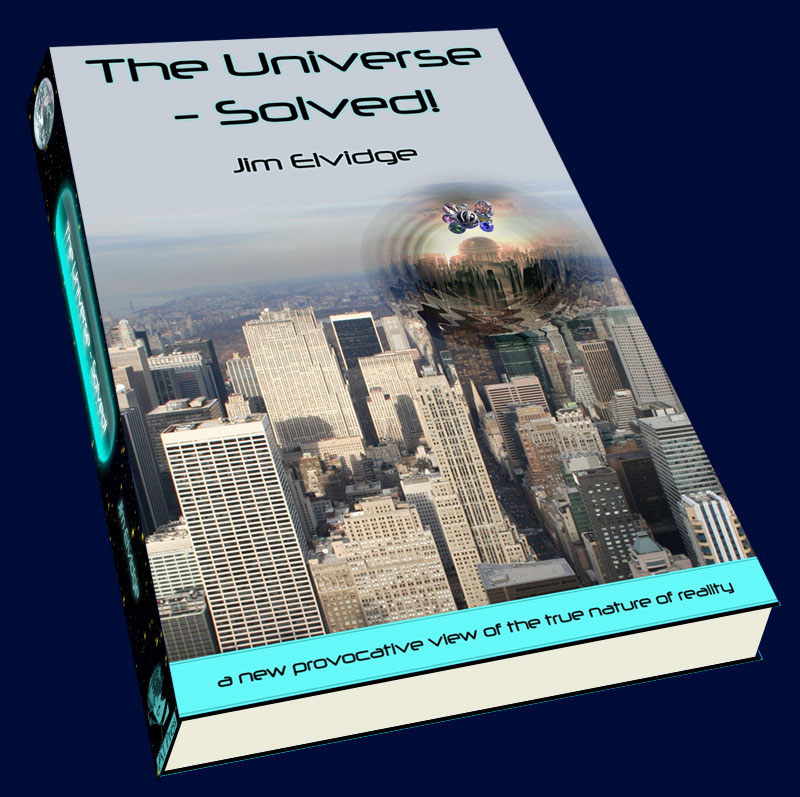













 Once i was fully introduced to the material, there was no turning back.
Once i was fully introduced to the material, there was no turning back. I am familiar with the Seth materialsI haven't read all of Jane Roberts Books but am keen to do so when the proper time for this comes. In the meantime I joined a facebook group where these materials are quoted and discussed which is great. Good stuff. Would you wish to visit there is a thread I opened here about The Nature Of Personal Reality and Seth :
I am familiar with the Seth materialsI haven't read all of Jane Roberts Books but am keen to do so when the proper time for this comes. In the meantime I joined a facebook group where these materials are quoted and discussed which is great. Good stuff. Would you wish to visit there is a thread I opened here about The Nature Of Personal Reality and Seth :












:origin()/pre00/5c7d/th/pre/i/2017/219/1/3/bolt_from_the_blue_by_oliverink-dbj5slu.jpg)






















































/https%3A%2F%2Fblueprint-api-production.s3.amazonaws.com%2Fuploads%2Fcard%2Fimage%2F649341%2Fb05caefb-d262-489f-832d-4a2bad253257.jpg)















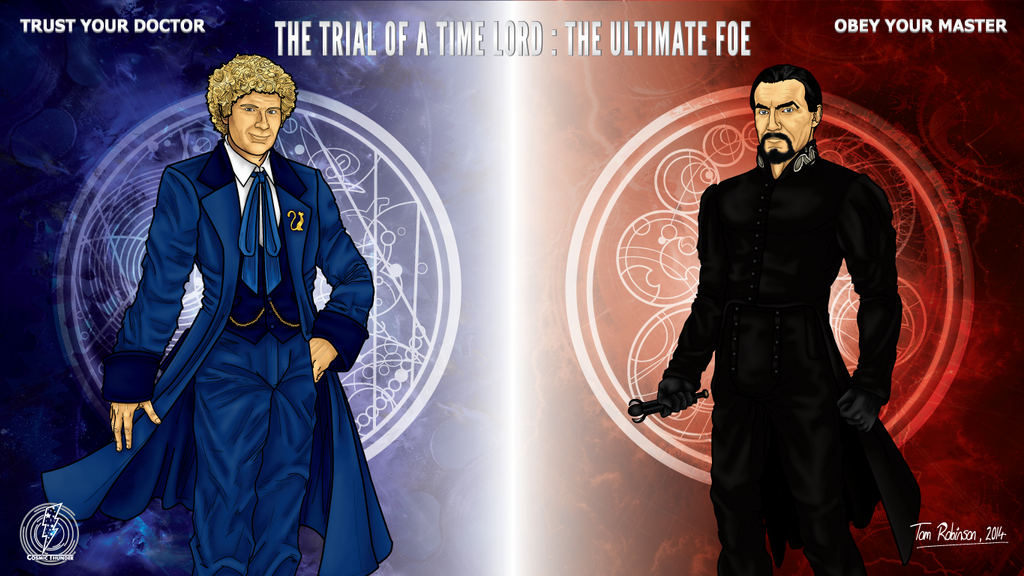

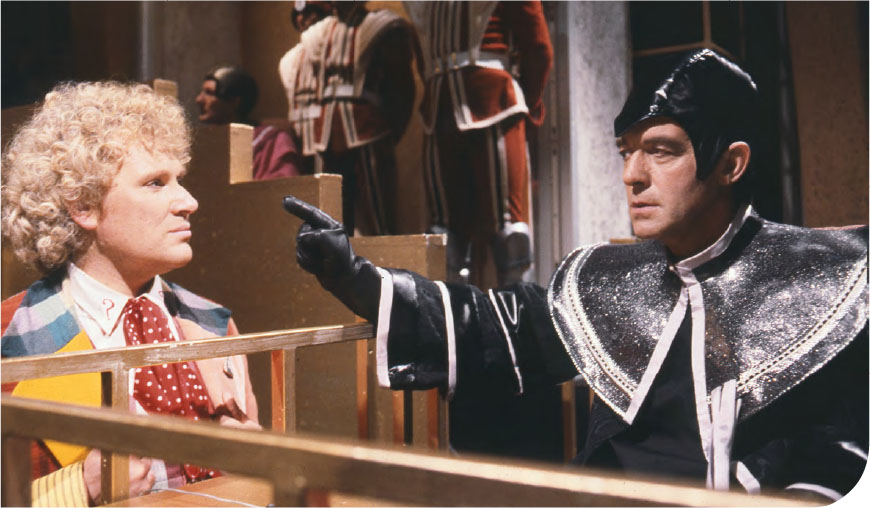
















_-_Noah's_Ark_Cycle_-_3._The_Flood_-_WGA14802.jpg)




































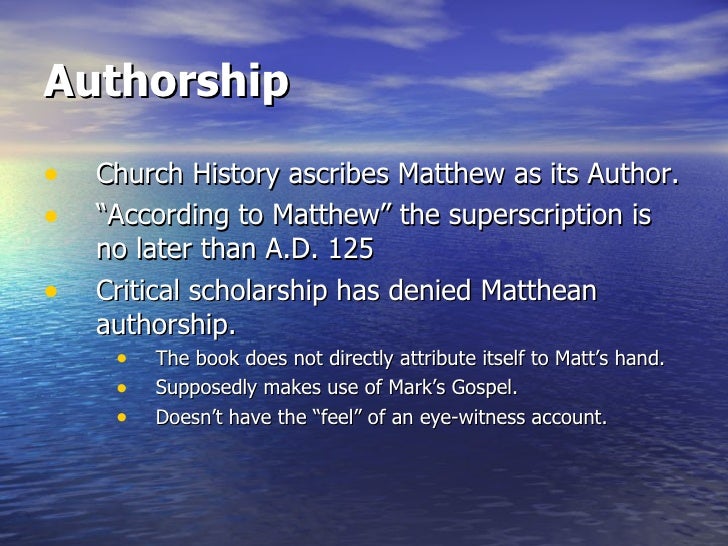









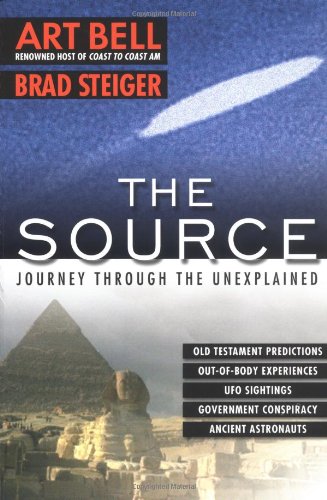



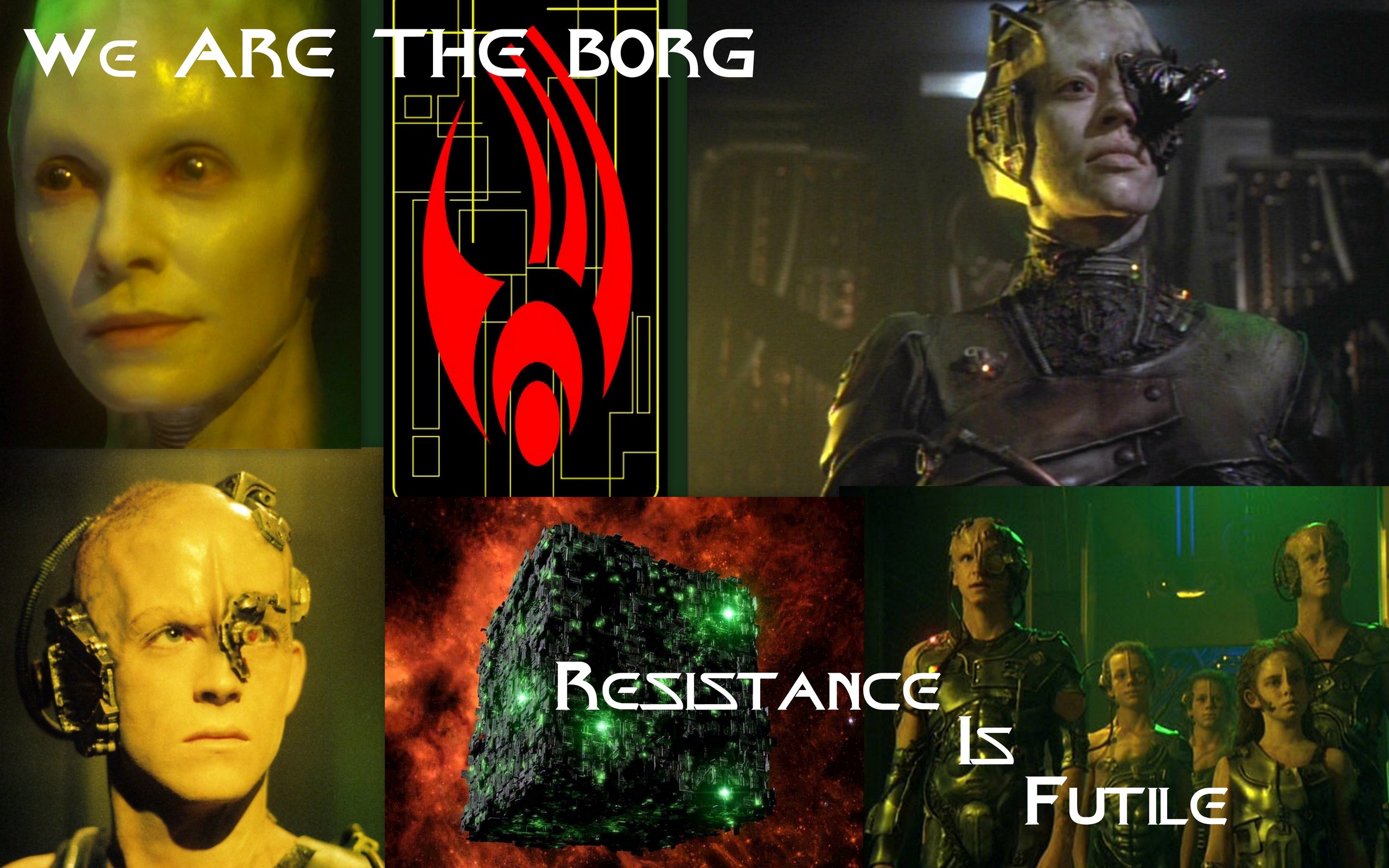













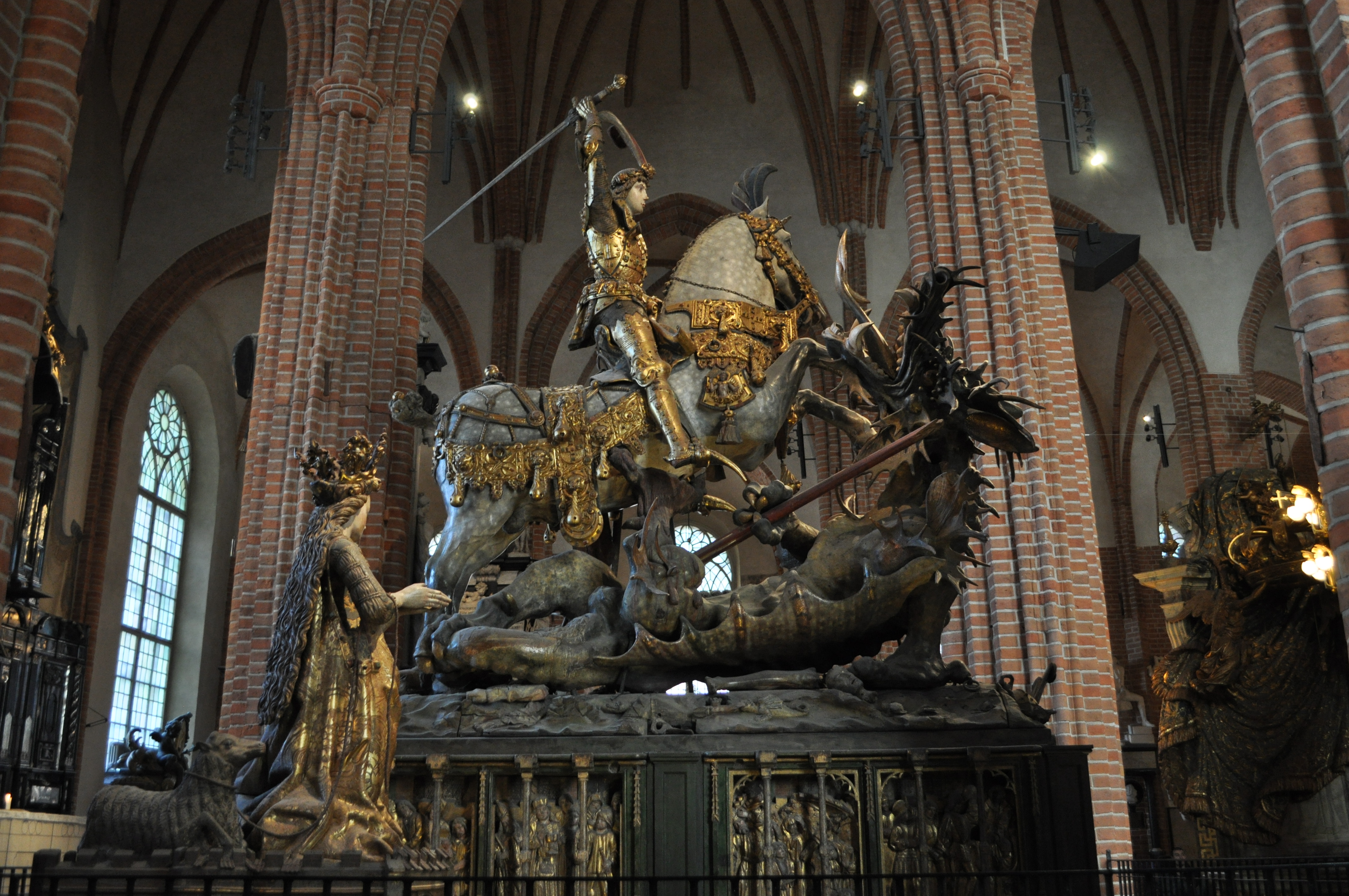


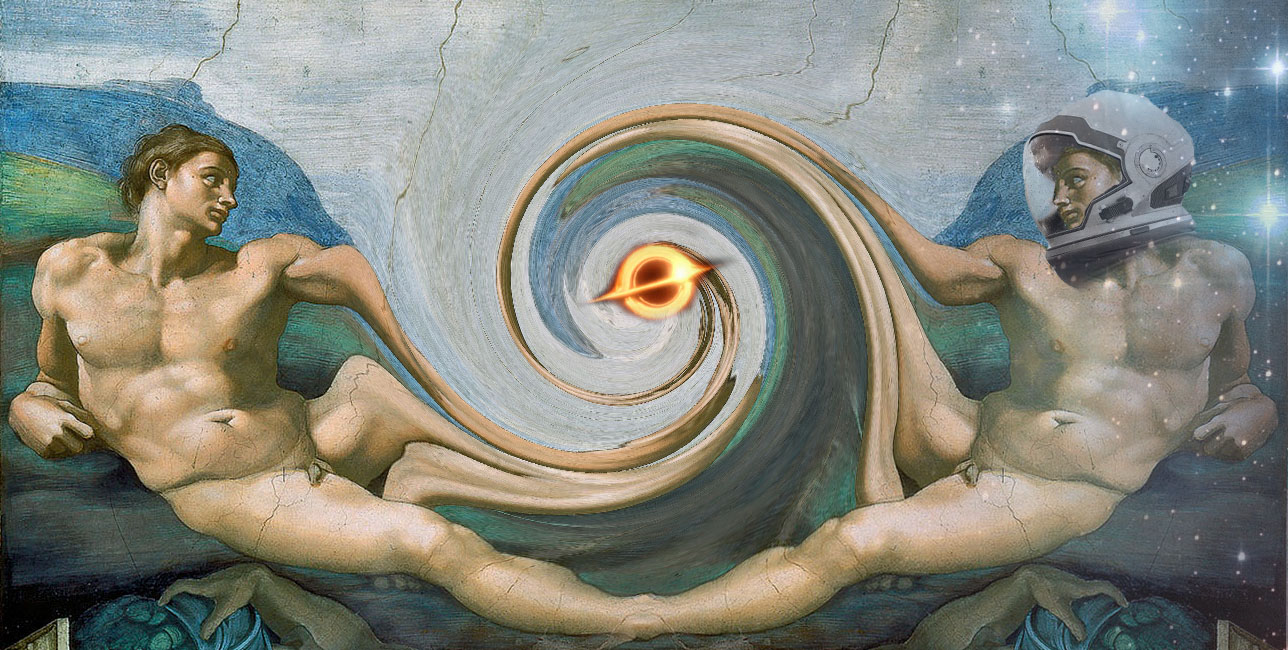





















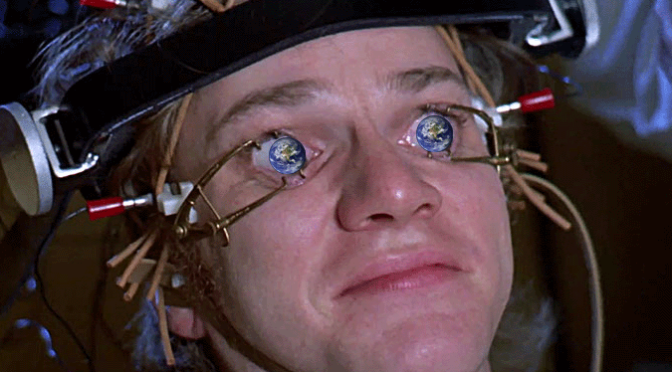









.jpg)



_01.jpg)



